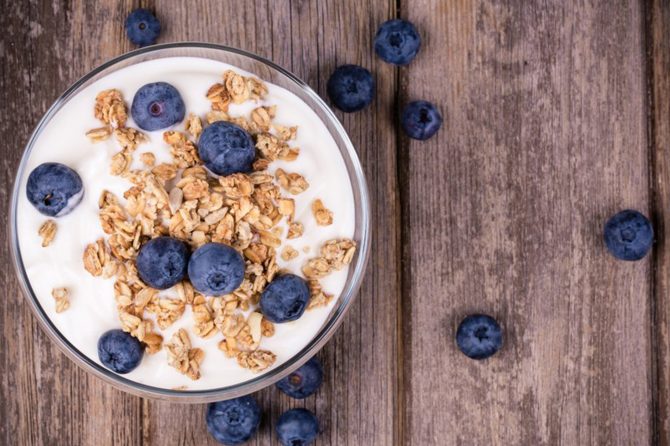
Leaky Gut: What To Eat. What To Avoid
Leaky gut is a condition that creates gaps in the lining of the intestinal walls. These gaps allow food particles, bacteria, and waste products to seep directly into the bloodstream. Eating foods that positively influence intestinal bacteria and inflammation can help relieve symptoms.
Leaky gut describes how easily substances such as food, nutrients, and bacteria can pass through the intestinal wall. The intestinal wall consists of epithelial cells. Tiny gaps between these cells allow water, ions, and other nutrients to flow from the intestines into the bloodstream. Usually, food and waste particles cannot pass through these gaps. In leaky gut syndrome, however, inflammation and bacterial imbalances in the gut cause these gaps to expand. This allows harmful substances to leak into the bloodstream.
In fact there is a close relationship between concentrations of intestinal bacteria, inflammation, and leaky gut. Importantly, diet and nutrition may influence these factors.
Foods To Eat
Having a low biodiversity of gut bacteria may lead to increased leaky gut and inflammation. It may even increase the risk of several conditions, including inflammatory bowel disease and obesity. So, people may benefit from adopting a diet that increases the diversity of bacteria within the gut. This is likely to involve incorporating more prebiotic and probiotic foods that support the growth of beneficial gut bacteria.
Examples of such foods include:
- Probiotic Yogurt
- Fermented Yogurt, Or Kefir
- Other Fermented Foods, Such As Kimchi, Sauerkraut, And Miso
- Sourdough Bread
- Some Cheeses
Other foods that may improve gut health include:
- Vegetables Such As Eggplant, Broccoli, Cabbage, Carrots, And Zucchini
- Fruits Including Blueberries, Grapes, Oranges, Papaya, And Strawberries
- Nuts And Seeds, Such As Almonds, Peanuts, Cashews, And Pine Nuts
- Lactose Free Dairy Products And Dairy Alternatives, Including Hard Cheese, Lactose Free Milk, And Plant Based Milk Alternatives
- Grains Such As Oats, Corn, Rice, And Quinoa
Foods To Avoid
People who experience unpleasant gastrointestinal symptoms may want to avoid eating foods that are difficult to digest. Experts refer to these foods as fermentable oligo-, di-, mono-saccharides and polyols (FODMAPs). FODMAPs are short chain carbohydrates, which bacteria break down, or ferment. This fermentation process results in the production of gas, which causes uncomfortable symptoms such as bloating and flatulence.
Examples of FODMAPs include:
- Fructose
- Lactose
- Fructans
- Galactans
- Polyols
Adopting a low FODMAP diet may reduce gas production. This, in turn, may help alleviate the digestive discomfort that leaky gut syndrome brings.
High FODMAP foods to avoid include:
- Fruits Such As Apples, Cherries, Peaches, Pears, Goji Berries, Dates, And Watermelon
- Vegetables Including Asparagus, Mushrooms, Onions, And Garlic
- Legumes, Such As Black Beans, Fava Beans, Kidney Beans, And Chickpeas
- Natural And Artificial Sweeteners, Including Fructose, Honey, Xylitol, Sorbitol
- Grains Such As Wheat, Flour, Barley, Rye, And Almond Meal
- Beverages Including Soda, Fruit Juice, Beer, And Wine
What Does The Research Say?
Some experts have suggested that the protein zonulin could play an important role in leaky gut. This is because zonulin regulates the size of the gaps between epithelial cells. Higher zonulin levels in the bodies of people with irritable bowel syndrome compared with people who did not have the condition.
Also women with high zonulin levels showed lower concentrations of beneficial gut bacteria than women with low zonulin levels. These beneficial bacteria appear to reduce gut permeability and intestinal inflammation. Women with low zonulin levels also tended to consume diets higher in calories, carbohydrates, protein, and salt. Although these associations were minor, the researchers suggest that diet may influence gut bacteria, leaky gut, and overall digestive health.
Summary
Leaky gut syndrome, or increased leaky gut, can cause uncomfortable symptoms, such as constipation, diarrhea, and bloating. People who think that they may have leaky gut syndrome can try making dietary changes to manage their symptoms.
Not everyone responds in the same way to different foods. People can try keeping a food diary to identify foods that trigger leaky gut symptoms. People should consider seeing a doctor if their symptoms do not improve despite incorporating the above dietary changes.
Leaky Gut Syndrome is one of the regenerative medicine treatments offered at Integrative Telemedicine. Our physicians will perform a comprehensive evaluation of your condition in order to determine which treatment might be best for you. They will explain your options so that you can make a decision you’re most comfortable with.
If you have any questions or would like to schedule a consultation, call our friendly staff today at (520) 396-4866 or fill out our online request form. We look forward to being your healthcare partner.
Leave a reply
